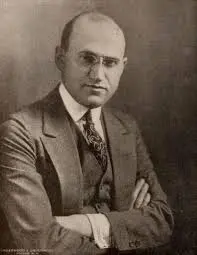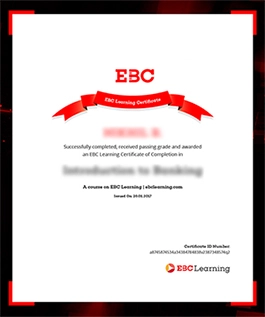Contract Law Essentials: Mod 1 — Formation of Contract
About Course
Contracts are part and parcel of our everyday life. It is one of the foundational courses in law school. Although it is taught in the initial years in law school, it is perhaps one of the most important subjects. One could say that 90% of all commercial legal disputes involve some element of contract law. In that sense having a thorough grounding in contracts is essential for any practitioner. This course is aimed towards students and is specifically designed with their syllabus in mind. However, practitioners may also use this course as a refresher for some fundamental concepts. Contract law also remains the foundational subject for many competitive examinations and in MBA schools. Given the way that this course is designed, it will serve as a convenient source for covering the syllabus of such examinations and the requirements of MBA students.
Special features:
- Examination Pointers.
- Access to full text of all cases (56 in Module 1) that are included in a typical law school syllabus.
- Access to a discussion forum.

When a law is in its nature a contract, when absolute rights have vested under that contract, a repeal of the law cannot divest those rights.
John Marshall- 1. Introduction
- 1.1 Welcome
- 2. Public law, private law and the common law
- 2.1 Introduction
- 2.2 Is contract law part of public law or private law & does it matter?
- 2.3 Sources of the law of civil wrongs
- 2.4 Subdivisions of the law of civil wrongs—Contract, tort, unjust enrichment and equity
- 2.5 Overlap in the application of one or more bodies of law and extending private law
- I. Private law chart
- II Exercises
- ☆ Feedback
- 3. Origin and function of contract law
- 3.1 Collaborating for survival and progress
- 3.2 Instinctive collaboration to contracts
- I. Exercises
- 4. Formation of an agreement/ potential contract
- I. Relevant sections
- 4.1 Introduction: Creating an agreement
- 5. Offer
- I. Relevant sections
- 5.1 What is an offer?
- 5.2 Invitation to treat—Ads & displayed goods
- 5.3 Invitation to treat—Auctions & tenders
- II. Exercises set 1
- III. Exercises set 2
- IV. Examination pointers
- V. Full text of leading cases
- 6. Acceptance
- I. Relevant sections
- 6.1 Promisor—the master of the bargain
- 6.2 Acceptance must be a mirror image of the offer: counter offers
- 6.3 Motive of acceptance is irrelevant, but knowledge of the offer is essential
- 6.4 Reasonable period for acceptance
- 6.5 Acceptance must be communicated, knowledge of acceptance is not sufficient
- 6.6 Postal communication rule
- 6.7 Implied acceptance—performing conditions of the proposal
- II. Exercises set 1
- III. Exercises set 2
- IV. Exercises set 3
- V. Examination pointers
- VI. Full text of leading cases
- 7. Unilateral contracts
- I. Relevant sections
- 7.1 Unilateral offers: only one side is bound
- 7.2 No requirement for communication of acceptance
- 7.3 Revocation of unilateral offers
- II. Exercises
- III. Examination pointers
- IV. Full text of leading cases
- 8. Requirements for an agreement to be a contract
- I. Relevant sections
- 8.1 Introduction
- 9. Intention to create legal relations
- 9.1 Intent and informal promises
- 9.2 Intent and puffery
- 9.3 No intent in domestic arrangements
- 9.4 Where intent exists in domestic arrangements
- 9.5 Where intent exists in informal social arrangements
- 9.6 Presumption of intent in commercial cases
- I. Exercises
- II. Examination pointers
- III. Full text of leading cases
- 10. Certainty
- I. Relevant sections
- 10.1 Contractual terms must be certain
- II. Exercises
- III. Full text of leading cases
- 11. Free consent
- I. Relevant sections
- 11.1 One must consent and the consent must be free
- 12. Competency to contract
- I. Relevant sections
- 12.1 Competency to contract
- II. Exercises
- III. Examination pointers
- IV. Full text of leading cases
- 13. Lawful consideration and object
- I. Relevant sections
- 13.1 Consideration
- 13.2 Consideration must be exchanged
- 13.3 Gifts
- 13.4 Past consideration for acts done at request
- 13.5 Executed consideration for a new promise given later
- 13.6 Lawful consideration with lawful object
- II. Exercises
- III. Examination pointers
- IV. Full text of leading cases
- 14. Consideration: Desire of the promisor
- I. Relevant sections
- 14.1 Consideration must be given ‘at the desire of the promisor’
- 14.2 When consideration is not at the desire of the promisor
- 14.3 Consideration from 'promisee or any other person'
- II. Exercises
- III. Examination pointers
- IV. Full text of leading cases
- 15. Consideration: Minimal, worthless and inadequate
- I. Relevant sections
- 15.1 Minimal but sufficient consideration
- 15.2 Worthless consideration
- 15.3 Inadequate consideration as evidence of unequal bargaining power
- 15.4 Consideration and unilateral contracts
- II. Exercises
- III. Examination pointers
- IV. Full text of leading cases
- 16. Consideration: Pre-existing duties
- I. Relevant sections
- 16.1 Pre-existing obligation—Subsisting obligations
- 16.2 Re-negotiation based on practical benefit
- 16.3 Practical benefit: English versus Indian law
- II. Exercises
- III. Examination pointers
- IV. Full text of cases
- 17. Concluding module one
- 17.1 To conclude
- 18. INDEX (Full text of cases)
- I. INDEX: Full text of cases
- ☆ Feedback
Instructors

Abhinandan Malik
Editor Publications & Director, EBC Learning
Abhinandan Malik is Editor (Publications) & Director at EBC, India's top law publisher. He is a graduate of NALSAR University of Law with an LLM from the University of Toronto. He has 10+ years of editorial experience, conceptualising, guiding and editing publications at EBC.

A verbal contract isn’t worth the paper it is written on.
Samuel GoldwynCertificate
Complete this course and exercises to earn a certificate. Share it with your friends, colleagues, and employers.*
*You must Subscribe to get a certificate.

-
Ritik ojha
-
Ritik ojha
Limit Reached or Trial Expired
You have reached the limit of 2 audit enrollments or your trial period has expired.


